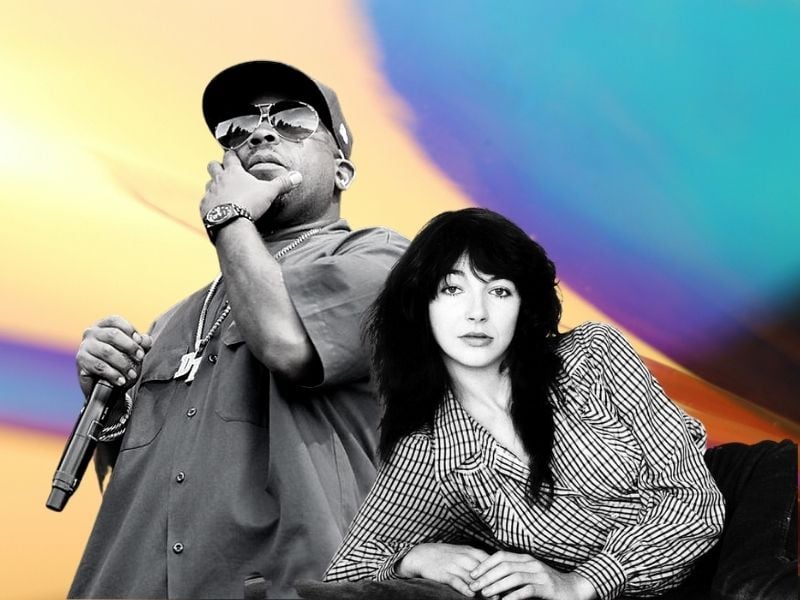Kate Bush is perhaps one of the UK’s most unique talents. After dominating the charts with her debut single ‘Wuthering Heights’ in 1979, she became an essential part of the UK’s musical landscape, carving out a space for herself in an industry dominated by punk and new wave. While she stood in stark contrast to the likes of Sex Pistols, The Clash, and The Stranglers, her exuberant performance style and explorative sensibility showcased the authenticity that the punk world so revered. Since those days, she has gone on to have a remarkable legacy, making an impact on a wide range of genres, including – somewhat surprisingly – hip-hop.
Her legacy of combining experimental sound with unconventional lyrics and song structures has allowed Kate Bush’s music to permeate all musical boundaries. As Boy George once said: “She appeared out of nowhere at the tail end of punk and sort of embodied the punk spirit by just being completely herself. She blew things apart with things like ‘Running Up That Hill’ because it defied the classic logic of pop.” Her status in this regard is largely down to her utter control over her own music. Without that strength of will, she certainly would not have burst onto the scene the way she did in those last years of the ’70s. EMI originally wanted the rockier track ‘James and the Cold Gun’ to be her debut single. Bush, however – who was still only a teenager at that time – insisted that it be ‘Wuthering Heights.’
From pioneering electro-pop songwriter and producer Imogen Heap to Peter Gabriel and FKA Twigs, the legacy of Kate Bush can be felt in practically every corner of the music industry. Her work has even inspired some of hip-hop’s most important figureheads, including Tupac and Outkast’s Big Boi, a longtime fan of Bush’s 1985 hit ‘Running up That Hill.’ He once revealed that the song was a mainstay of his bike ride to and from school.
“I fell in love with her songwriting and how her songs would tell stories. It was deep,” he once explained in an interview. “From there she became one of my two favourite artists.” That knack for storytelling made it into Big Boi’s own work, with the lyrics of many of Outkast’s biggest hits tracing a narrative from start to finish. The deeply personal connection Big Boi formed with Bush’s music was so deep, in fact, that he decided to go to England – where she was in London for press meetings – in the hope of meeting her.
The pair eventually met in 2017 for dinner, having exchanged texts for several years. According to the Outkast member, the meeting “was the coolest experience ever. We talked mainly about our children. She wasn’t really recording at the time because she wanted to focus on her kid. That’s another thing that really brought us together—centring our family. We had a nice little dinner and we just sat there and chatted for like an hour or two.” Big Boi’s affection for Kate Bush was based not just on her musical leanings but also on her values.
Her music, at once exaggerated and concise, was the product of a unique vision and immense respect for the authenticity of her own work. Big Boi continued this tradition in both his work with Outkast and as a solo artist. Bush is one of the few stars of her generation who haven’t undertaken a self-congratulating, indefinite comeback tour. Rather, she is happy to leave her music to speak for itself, and it certainly speaks. Decades later, she is still the queen of art-pop.
